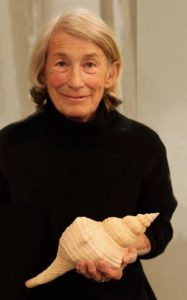 I was saddened to see the announcement yesterday of the passing of Mary Oliver, longtime favorite poet of mine and of many others in my circles. What an extraordinary woman and writer! I first fell in love with her over her poem “The Summer Day,” which asks big questions like “Who made the world?” and states big thoughts like “I don’t know exactly what a prayer is,” then devotes the heart of the poem to a grasshopper she has happened to meet. That’s the poem that ends with her famous question: “Tell me, what is it you plan to do with your one wild and precious life?”
I was saddened to see the announcement yesterday of the passing of Mary Oliver, longtime favorite poet of mine and of many others in my circles. What an extraordinary woman and writer! I first fell in love with her over her poem “The Summer Day,” which asks big questions like “Who made the world?” and states big thoughts like “I don’t know exactly what a prayer is,” then devotes the heart of the poem to a grasshopper she has happened to meet. That’s the poem that ends with her famous question: “Tell me, what is it you plan to do with your one wild and precious life?”
Her close association with and powerful descriptions of the smallest details of nature kept all of her readers grounded, and she was clear in her instruction: “Pay attention. Be astonished. Tell about it.”
She left a large body of work, more than twenty collections of poems. The latest, Devotions, was published by Penguin Press in 2017 when she was in her early 80s.
Of course, in all that work, especially work so closely tied to nature, there was bound to be something on death, because she thought about that too. She wrote: “When it’s over, I don’t want to wonder if I have made of my life something particular, and real. I don’t want to find myself sighing and frightened, or full of argument. I don’t want to end up simply having visited this world.”
She didn’t simply visit. She graced us all with poems that remain with us, reminding us to pay attention, be astonished, and tell about it. God bless you, Mary.




